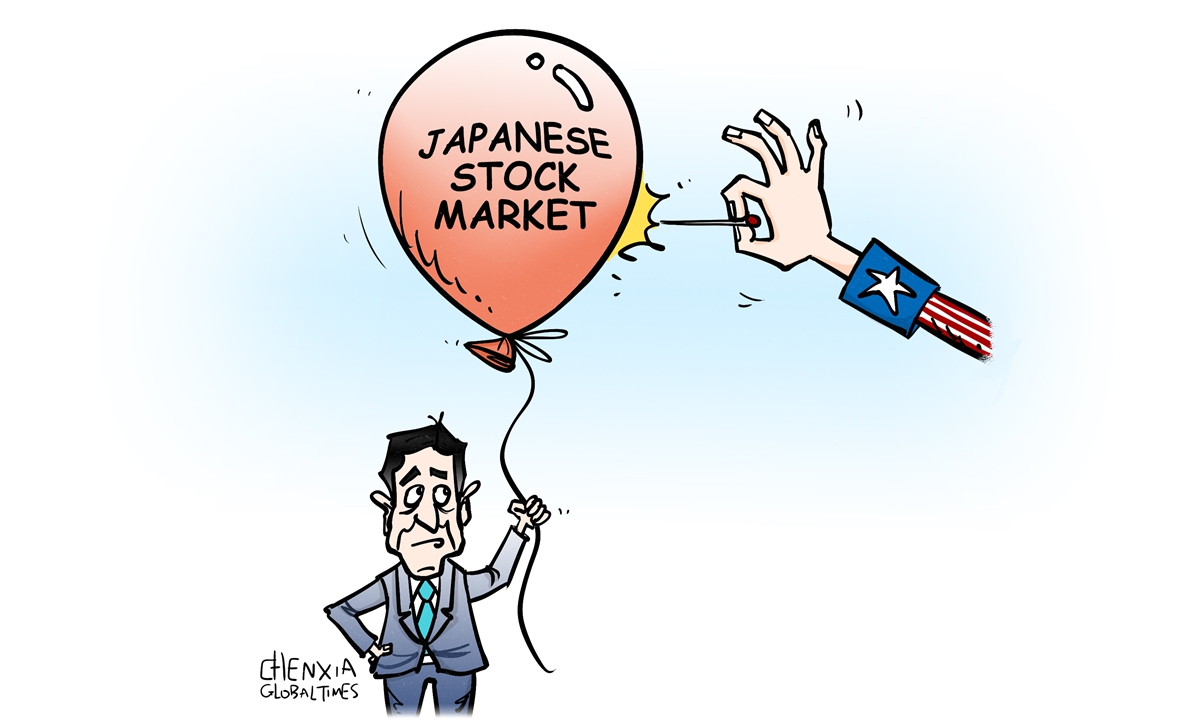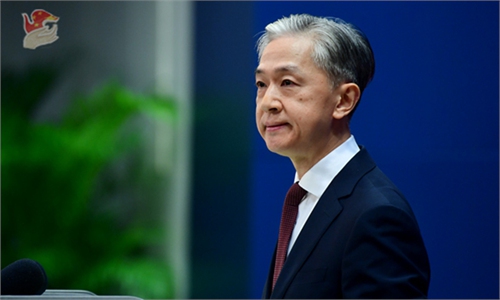
Illustration: Chen Xia/Global Times
The Japanese stock market is booming, but Japan's real economy is now facing various challenges. The deviation between Japan's economic fundamentals and its stock market is like two gears pulling in opposite directions, and the longer the deviation exists, the more financial risks will be accumulated in the economy.
Japan's stocks reached their highest level in nearly 33 years on Monday, with the benchmark Nikkei 225 index closing 0.9 percent higher at 31086.82, exceeding the psychological key 31,000 point level for the first time since July 1990. On Tuesday, the index fell slightly, but market watchers believe a bullish trend remains unchanged. The Nikkei 225 index has gained more than 16 percent since the beginning of this year.
Japan's stocks have been making a comeback. Some of the world's most famed investors have ploughed into Japan's stocks and futures over the past few months, with some statistics showing foreign investors bought a net 2.1 trillion yen ($15.4 billion) worth of Japanese stocks in April alone. Japan's stock market has long been seen by foreign investors as a "value trap," but at a time when the West is reeling under high inflation and interest rate hikes, it is not much of a surprise that Western investors turn their eyes to the Japanese market.
The stock market boom is, of course, good news for the Japanese economy. Currently, a key issue on the agenda is to transform the dividends of stock market boom into additional momentum for Japan's economic resurgence. The country's economy narrowly averted a recession in the October-December period of 2022, according to Reuters, barely growing on frail consumption after shrinking in the third quarter of 2022.
Against this backdrop, some observers said Japan's ranking as the world's third-largest economy is under threat. Many believe Germany is quickly catching up, and may be poised to overtake Japan in the coming years.
The Japanese economy advanced 1.6 percent on an annualized basis during the first quarter of 2023. Coupled with the current stock market boom, it has ignited expectations of sustainable economic recovery, although it won't be easy to achieve. Japan's economy relies too heavily on exports, many economists argue. To stimulate the real economy, enhancing exports will be an important part of the efforts.
China and the US have repeatedly alternated as Japan's leading trading partner. China-Japan economic cooperation benefits Japan's economic growth, it is also conducive to Japan's economic transition. This is something that has been proved in history. If Japan wants to boost its exports, it will inevitably have to increase its dependence on the Chinese market.
However, G7 leaders recently outlined a shared approach to "de-risk, not decouple" their economic engagement with China in a communiqué, which will disrupt the existing global economic system. The "de-risking" push will particularly harm the Japanese economy, which is currently in a critical period of recovery.
If Japan's real economy stalls, the current stock market boom will eventually accumulate as a new financial bubble following the massive liquidity being pumped into the economic system by Western investors. According to Nikkei Asia, overseas investors bought a net 1.05 trillion yen in Japanese stocks during the five trading sessions through April 14 as billionaire investor Warren Buffett signaled his confidence in the market. The so-called Buffet effect has been seen as a positive signal of economic recovery, but if the development of the real economy falls short of expectations or is interrupted, then the influx of foreign hot money into the Japanese stock markets will bring hidden dangers to Japan's economy.
It is appropriate to take some steps to avoid a situation where geopolitical considerations interfere with the country's economic recovery. Japan should return to economic rationality, abandon the term "de-risking," and adopt a pragmatic attitude to address its economic and trade issues.
The author is a reporter with the Global Times. bizopinion@globaltimes.com.cn



